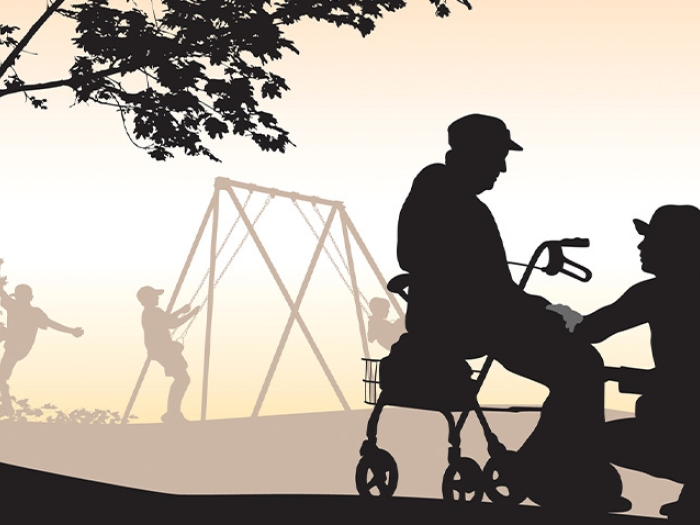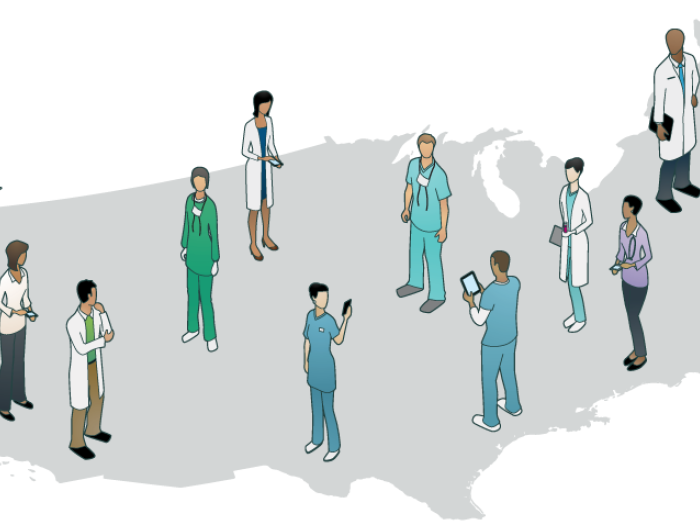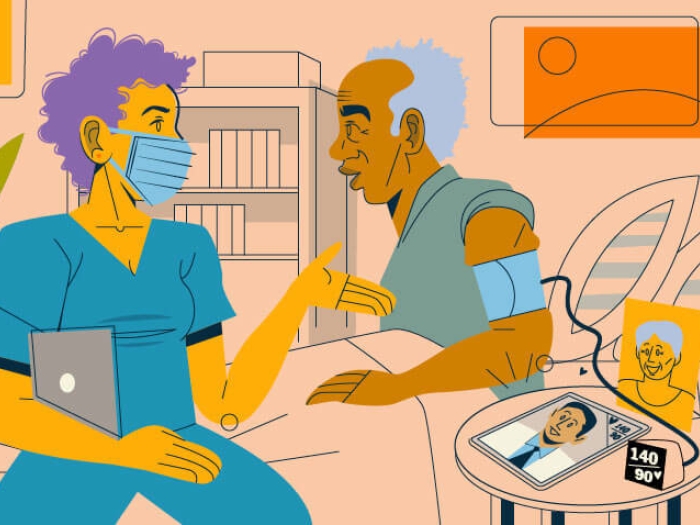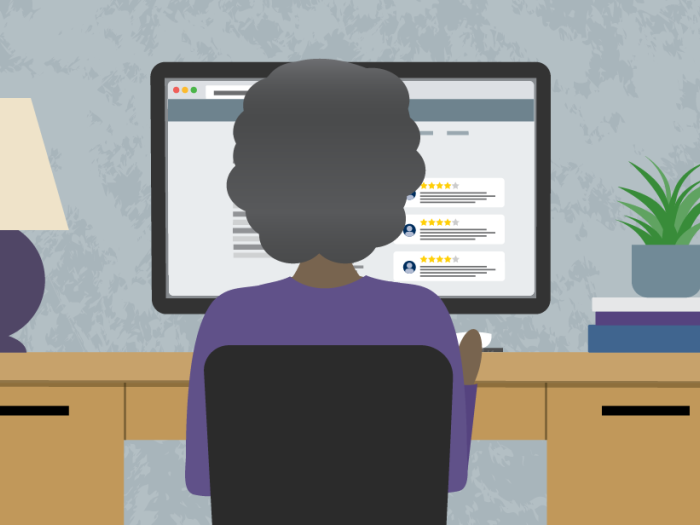Americans nearing retirement face double trouble: more disability and cognitive issues than their elders had at this age and a longer wait to collect Social Security.
4:00 PM
Author |

Ten years from now, Americans born in 1960 will be able to start collecting their full Social Security retirement check at the age of 67. That's two years later than their parents were able to collect — the result of a 1983 change to the federal retirement age.
MORE FROM THE LAB: Sign up for our weekly newsletter
But a new study shows that today's pre-retirement generation already has more health issues and health-related limits on their lives than prior generations did when they were in their late 50s.
The findings, made by a University of Michigan team using data from long-term health studies and funding from the Alfred P. Sloan Foundation, are published in the new issue of Health Affairs.
Important for people and policymakers
The study suggests that today's older workers will face more challenges than their predecessors as they continue to work or seek work, apply for Social Security disability payments, or try to retire on other income over the next decade.
SEE ALSO: Rich Seniors Are Getting Healthier, Leaving the Poor Behind
"We found that younger cohorts are facing more burdensome health issues, even as they have to wait until an older age to retire, so they will have to do so in poorer health," says Robert Schoeni, Ph.D., a U-M economist and demographer and a co-author of the new paper.
Which is why the researchers also say their findings have implications for any proposals to increase the Social Security retirement age for people now in their 50s and younger as a way to stretch the federal budget.
"Other research has found similar trends in the health of Americans who are now in their 50s and 60s, but this is the first study to look specifically at groups, or cohorts, of Americans by Social Security retirement age, which has specific policy implications," says HwaJung Choi, Ph.D., lead author of the new study and an economist and demographer at the U-M Medical School.
Younger cohorts are facing more burdensome health issues, even as they have to wait until an older age to retire, so they will have to do so in poorer health.Robert Schoeni, Ph.D.
Long-term look at five birth cohorts
Choi and Schoeni, both members of the U-M Institute for Healthcare Policy and Innovation, published a paper last year looking at health-related limitations among people who were in their late 50s and 60s from 1998 to 2012.
Although data showed those limitations remained stable during that period, the authors also learned that people with less education and greater economic hardship tied to the Great Recession had worse health.
The new paper used data from the Health and Retirement Study, which is funded by the National Institute on Aging and based at the U-M Institute for Social Research, and from the National Health Interview Survey run by the Centers for Disease Control and Prevention.
Both studies go back decades and provide in-depth data from people of different ages — making it possible to see how different age cohorts were doing at different times.
For this study, researchers grouped older Americans into five birth cohorts:
-
Those who could receive their full Social Security benefits at 65 because they were born in 1937 or earlier
-
Those born during 1938-42 who could claim benefits sometime during the year they turned 65
-
Those born between 1943-54 who could claim at age 66
-
Those born between 1955 and 1959 who can claim somewhere between ages 66 and 67
-
Those born in 1960 to 1962, who are the first group to have to wait until age 67 to collect their full Social Security benefit
Key findings
Those born later, the ones who have to wait longer to receive their full Social Security benefits, are at a clear disadvantage, the data found: They tended to have higher rates of poor cognition, such as memory and thinking ability, in their 50s than the earlier cohort groups had at a similar age.
When people in the latest-born birth cohort were asked around age 50 to rate their own health, more of them said it was fair or poor compared to responses from the middle three birth cohorts collected during the same time in their lives.
Likewise, the later-born groups had higher percentages of people with at least one limitation on their ability to perform a basic daily task living by themselves, such as shopping for groceries, taking medications or getting out of bed.
There weren't strong differences between any of the cohorts in terms of physical function, such as climbing a flight of stairs without resting, lifting 10 pounds, or walking several blocks.
But there were stark differences in health between people with different levels of education, a divide that other studies have shown. For instance, 1 in 4 people who had to wait until age 66 to claim full benefits and had less than 12 years of education reported at least one health-related life limitation when they were in their mid-50s.
Among those in the same cohort with more education than a high school diploma, only about 7 percent had at least one such limitation. People whose schooling ended at 12th grade were in the middle.
Longer, not healthier, lives
The authors note that Social Security retirement age changes were made when soon-to-be recipients who are now in their 50s and 60s were only in their 20s and 30s. At that time, demographers predicted that people were likely to live longer than their parents' generations.
SEE ALSO: Education Levels Could Be Indicator of Patients' Dementia Risk
"They were focusing on life expectancy, not morbidity, and implicitly assuming that improvements in mortality would be accompanied by similar improvements in health or morbidity," says Choi, a research assistant professor in the Division of General Medicine in the Department of Internal Medicine at Michigan Medicine.
"Now, [these people] are retiring and we know what their health is like — and it's not better. In fact, some aspects of their health are worse than for the people who came before them," says Schoeni, who holds appointments in the Institute for Social Research, the Department of Economics in the College of Literature, Science & the Arts, and the Ford School of Public Policy.
Schoeni continues: "As policymakers talk of making the retirement age even later, these findings suggest that to fully understand the benefits and costs of such a policy, we must realize that raising the retirement age may further exacerbate the inequality between cohorts born only a few years apart, because the younger ones may find it more challenging to work beyond age 67."
The authors note that education levels tend to be lower among those, regardless of cohort, who rely on Social Security for most or all of their retirement income. Their pre-retirement occupations also tend to involve more physical demands, making it more difficult to work to an older age.
Applications for Social Security disability benefits may also rise among this group, putting even more demands on the overall Social Security budget.
Health can also make a major difference in individuals' decisions to stop working once they reach Social Security retirement age. Many people want or need to keep working for pay after they start collecting Social Security, and some studies have suggested that working can be beneficial for health. But having poor health might prevent them from doing so.

Explore a variety of healthcare news & stories by visiting the Health Lab home page for more articles.

Department of Communication at Michigan Medicine
Want top health & research news weekly? Sign up for Health Lab’s newsletters today!





